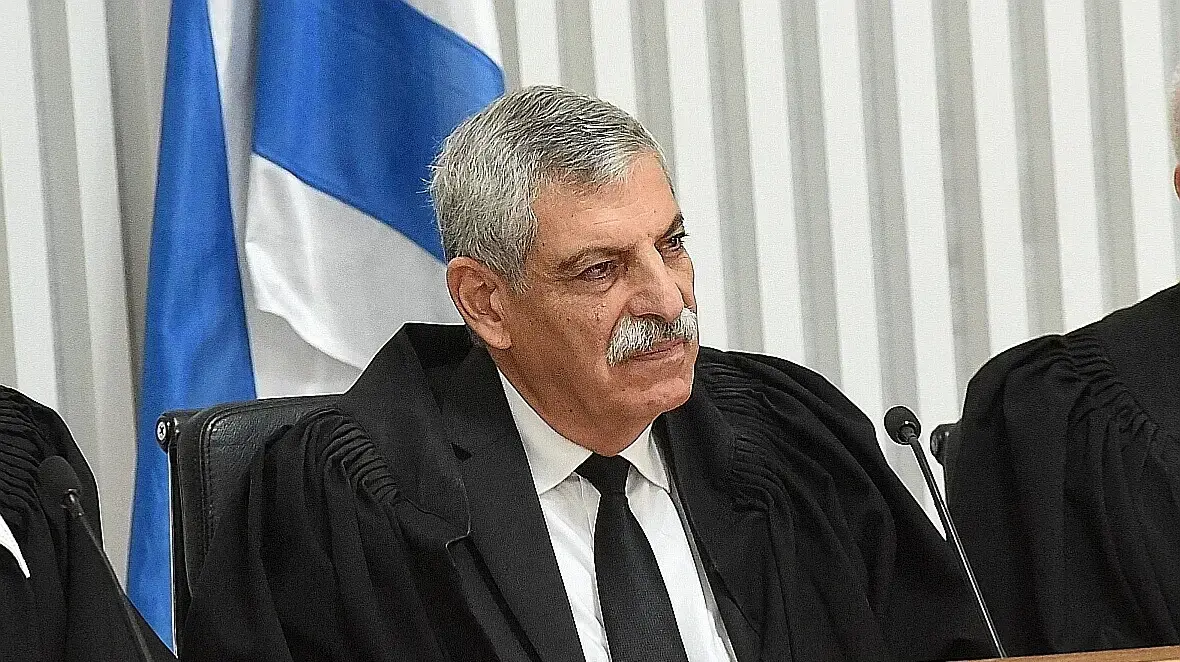"After the budget" has become the "after the holidays" of the Knesset. The rift in the government has long since begun but as long as the budget was ahead of them the coalition members were careful, who more and who less, and treated each other with respect. Conducted with relative restraint, and refrained from saying with a full mouth what was on their hearts. "After the budget," the ministers said each time they were asked to answer why they were not promoting what they had promised their constituents and why they were restrained when the government acted the opposite of their worldview.
Gideon Saar wants to pass a law that will block Netanyahu? "After the budget," Bennett replied. The Americans are pushing for the establishment of another consulate in Jerusalem? "After the budget," Lapid pleads with them. Merav Michaeli asked about public transportation on Saturday? "After the budget," she replies. If after the budget is similar to the payment on credit, then the due date is actually already here. As with almost everything in the current government since its inception, even in this case most of the promises will have no coverage,Then she will actually have to face her real political test for the first time.
Netanyahu's removal still sticks to all parts of the coalition, but it is already an old, musty glue. Voters demand achievements, and there are very few of them in stock. The government is barely functioning. Government ministries, which have been craving a budget for almost two years, like camels after two weeks in the desert, discovered quite early on that even when the budget passes, they will have to make do with the crumbs left by ministers after directing tens of billions for political maintenance and preservation. And ministers who cannot succeed in their job tend to produce noise elsewhere. And for such a fragile coalition, this noise may prove destructive.
The government is only in its infancy, but its scores are more characteristic of a government that is about to fill its days.
And all this when reality is quite caressing.
Corona does exist, but the security sector is quiet now.
Even Joe Biden, who seemed to be losing his temper, internalized the "after-budget" message and sat relatively quietly.
We'll see now if that silence is maintained.
With the government set to open a meeting in Eviatar, approve thousands of apartments in the settlement and continue public opposition to the opening of the consulate, the party's progressives will force Biden to act.
If the security arena, God forbid, awakens, even senior government officials estimate that it will be possible to eulogize it prematurely.
Who is brave and who is cowardly
What envelops all the challenges and difficulties to a more complex and difficult reality are the polls. Netanyahu's rise and the strengthening of the ultra-Orthodox coalition are supposed to stick everything else together, but on the other hand, Knesset members are already beginning to think about the day after at this stage. Those who squint to the left will have to quarrel with a few dozen MKs for a place on lists that pass the blocking percentage, such as Yesh Atid, Labor and possibly Blue and White. If the government disintegrates naturally, in two or three years, no one will get them back.
Netanyahu was prepared long after the budget. To this day, too, everything was goal-oriented. After all the budget, the way to overthrow the government becomes more complex and is in fact reduced to two main options: a law to dissolve the Knesset or a vote of no confidence.
The first option will not happen soon. Knesset members will not go to the polls voluntarily. Many of them will not return to the Tabernacle. Several dozen of them are generally "Norwegian", meaning those who are present in the Knesset without being elected to serve in it. Even if the party they are members of passes the blocking percentage, it will not benefit them and they will stay out.
The second option passes through the reign of the Bnei Gantz.
Distrust can only pass if the name of the prime minister is replaced, who will replace the incumbent and there will be 61 MKs who will support him. Netanyahu, Gantz, the right-wing coalition and MK Amichai Shikli have 61. But at the moment they do not have Gantz.
In closed talks, Netanyahu says that the defense minister is a coward.
He could have been prime minister right now, but for some reason he is afraid of his small voter base, and especially of the media that will attack him.
In this sense Bennett had more courage than Gantz had.
Bennett broke a much more explicit promise and went against a much more solid base that supported him, in order to fulfill his goal.
The message that Netanyahu has been sending in recent days is that he is not going anywhere, even if there have been rumors or speculations that after the budget he will make his personal exit.
With or without a plea deal, Netanyahu makes it clear to all his listeners that he intends to remain head of the opposition until the government falls.
It's all talk
The ping pong accusations that began this week between the former prime minister and Mansour Abbas came as a direct response from the prime minister to Netanyahu's speech in the Knesset two weeks ago, in which he attacked him, calling his party the Islamic Movement for the first time and claiming to be pro-terrorists. He saw that Netanyahu suddenly adopted the terminology of Bezalel Smutrich and went on the offensive. A hug attack. He said that Netanyahu negotiated with him and promised him to repeal the Kaminitz law as part of coalition agreements he sought to sign with him. Abbas did not say that Netanyahu wanted to add RAAM to the coalition and did not say that he planned to transfer tens of billions to him, as the current government transferred, and as Naftali Bennett claimed in one of his first speeches as prime minister, when he wanted to whitewash the move.
Both sides are not really accurate. Contrary to the impression that Abbas was trying to create, Netanyahu did not conduct coalition negotiations with RAAM and did not plan to repeal the Kaminitz law. He did express a willingness to go towards the demands of the Arab public in everything related to illegal construction. The Electricity Act - passed by the current government, which awards a reward for building offenses - has not even been talked about. On the other hand, although no coalition negotiations were conducted, Netanyahu could not attribute this to himself but to his political partner, Bezalel Smutrich, who vehemently refused.
On Netanyahu's part, if he had received the green light from religious Zionism, negotiations with the PM would have been conducted as well.
"Yoav Kish is right in his claim that the whole conversation with RAAM, in which he was involved, revolved around the law for direct election. But this is not because Netanyahu wanted it. At that time, in closed talks, Netanyahu told his party and senior members And the only one who stops it is Smutrich, who often slammed harsh words in those days.
To Netanyahu's credit, Ayala Hasson's investigation, which revealed a closer and more seemingly binding connection between the PM and terrorist activity, was published only this week and he may not have been aware of it. , From a national messiah to a civil discourse, may lead to precedent-setting cooperation between the Israeli government and an Arab party.









